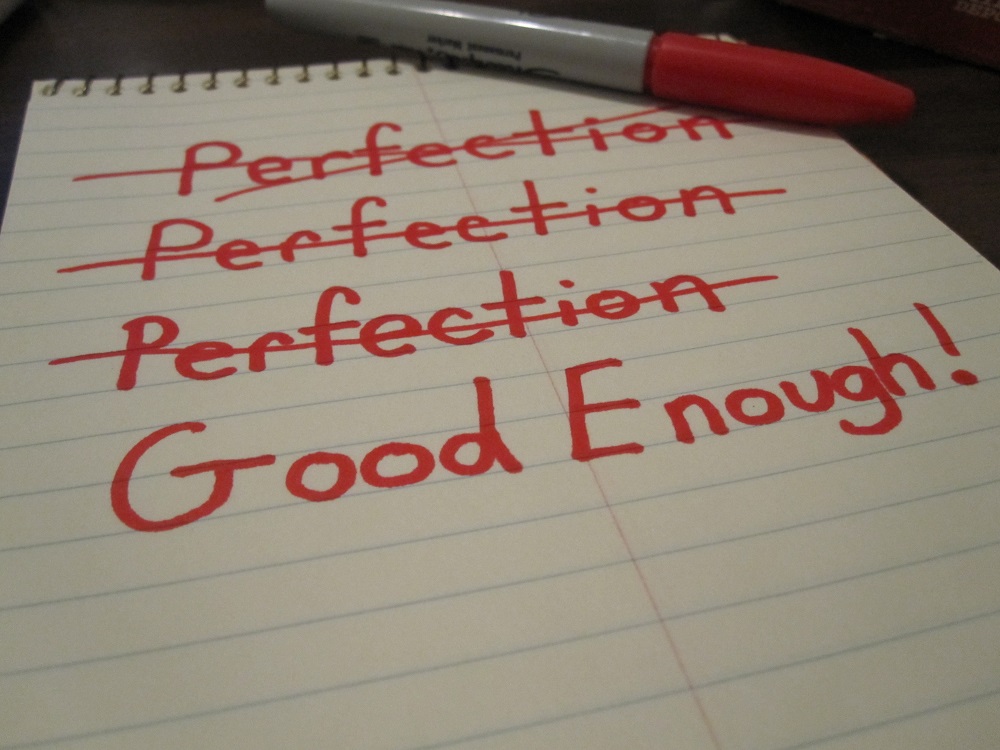Are you a perfectionist? Do you know what it feels like to pay such close attention to details that your mind goes numb? Do you obsess over the smallest of things, wanting to make sure everything you say and do turns out perfectly? Do you find yourself in a constant state of stress because of all the things you want/need to get done with perfection?
I know I do. I also know I don’t like it. As much as I want everything I do to be well executed, I’m tired of the constant pressure I put myself under. I’ve also noticed that perfectionism grows with age, so I’m scared of what I’m going to be like in five years if I keep going at this rate. I decided to find a balance that would keep my perfectionism from driving me insane.
To all perfectionists, I have great news: I found a possible cure for the constant strain your perfectionism puts you under.
You know how you always think to yourself “I must do this, I must not do less than that, I must accomplish this,” etc? That is what American Psychologist, Doctor Albert Ellis, calls “Musturbation”. It’s basically a person’s obsession with thinking, “I must, I should, I have to” about all things they believe they should do and the certain way they should do them in. We limit ourselves to an irrational belief and think it must go that way or else we’ve failed. (Example: “I must be treated with respect or else I’m worthless.” Or “I must ace all my exams or else I’m a failure.”)
This insistence on getting things done in a certain way increases frustration, anger and may lead to depression.
Ellis expressed that the irrationals beliefs that lead to the “I must” thoughts need to change in order for us to stop suffering from the anxiety they put us through.
Doctor Stephen Palmer, Psychology Professor at UCSD, offered a possible remedy to this exhausting thought-process. He calls it the Deserted Island Technique. What he’s suggesting we do here is replace the “I must” thoughts with “I would prefer”.
For instance, instead of saying, “I must get straight A’s”, Palmer thinks it would be better for us to say “I would prefer to get straight A’s, but I’ll be okay if I don’t.” This would reduce your anxiety while preparing for the exam and even after you’ve received the grade.
We tend to be very tough on ourselves, and through this technique, we’re taught to be more kind to ourselves. We’re human and we’re supposed to leave room for error. It doesn’t help to always ask too much of ourselves and feel bad when we don’t accomplish everything we want to. It’s okay if everything you do is not perfect. It’s okay if you can’t get it all done in one day. It’s okay if it takes you more than planned to get something done. It’s okay. Sure, you could prefer to have it differently, but you shouldn’t think that you must have it differently. Palmer would ask you, “Who says you must? Where does it say that you must?” You prefer, but you mustn’t. That difference in the thought process could save you from a lot of anxiety and self-defeating thoughts.
In the future, try to replace all the “I must” thoughts with “I prefer”; you’ll find that it reduces stress and makes you more flexible in the demands you have for yourself. That is definitely not to say that you should aim to perform worse than you usually do. It’s just a technique that will allow you to go easy on yourself. You’d be performing the same –and possibly better because of the reduced stress- while being kind and relaxed with yourself.



















